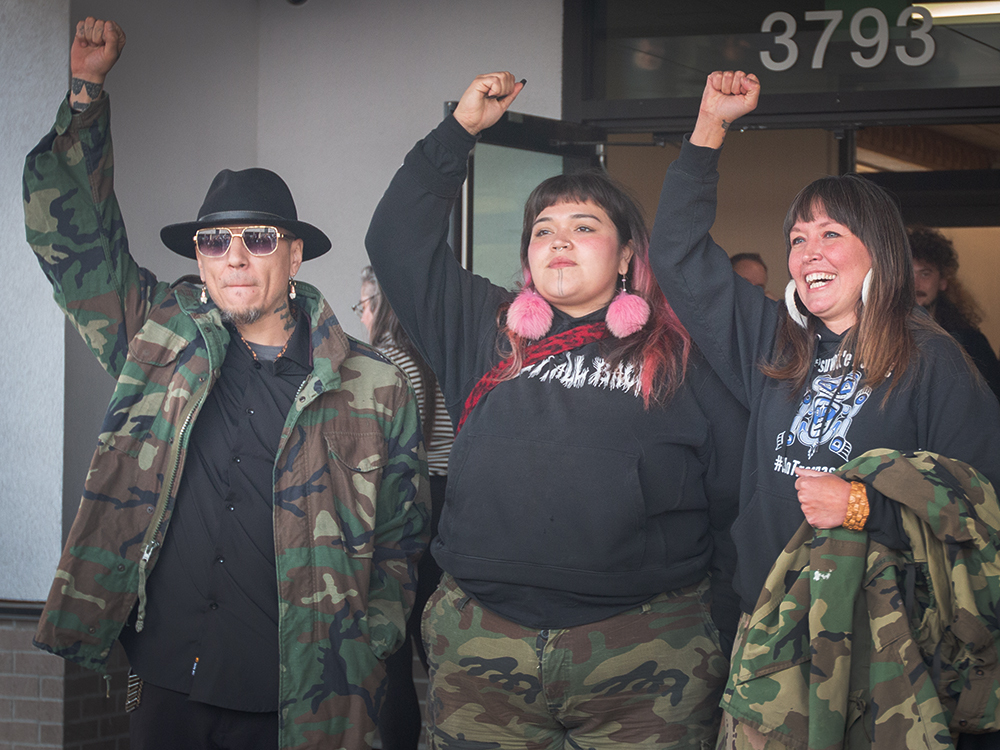VIU summer camp introduces Indigenous youth to life on campus
‘You don’t have to give up your cultural identity to come to a place of higher learning,’ says Thuy’she’num Tu Smun’eem camp coordinator
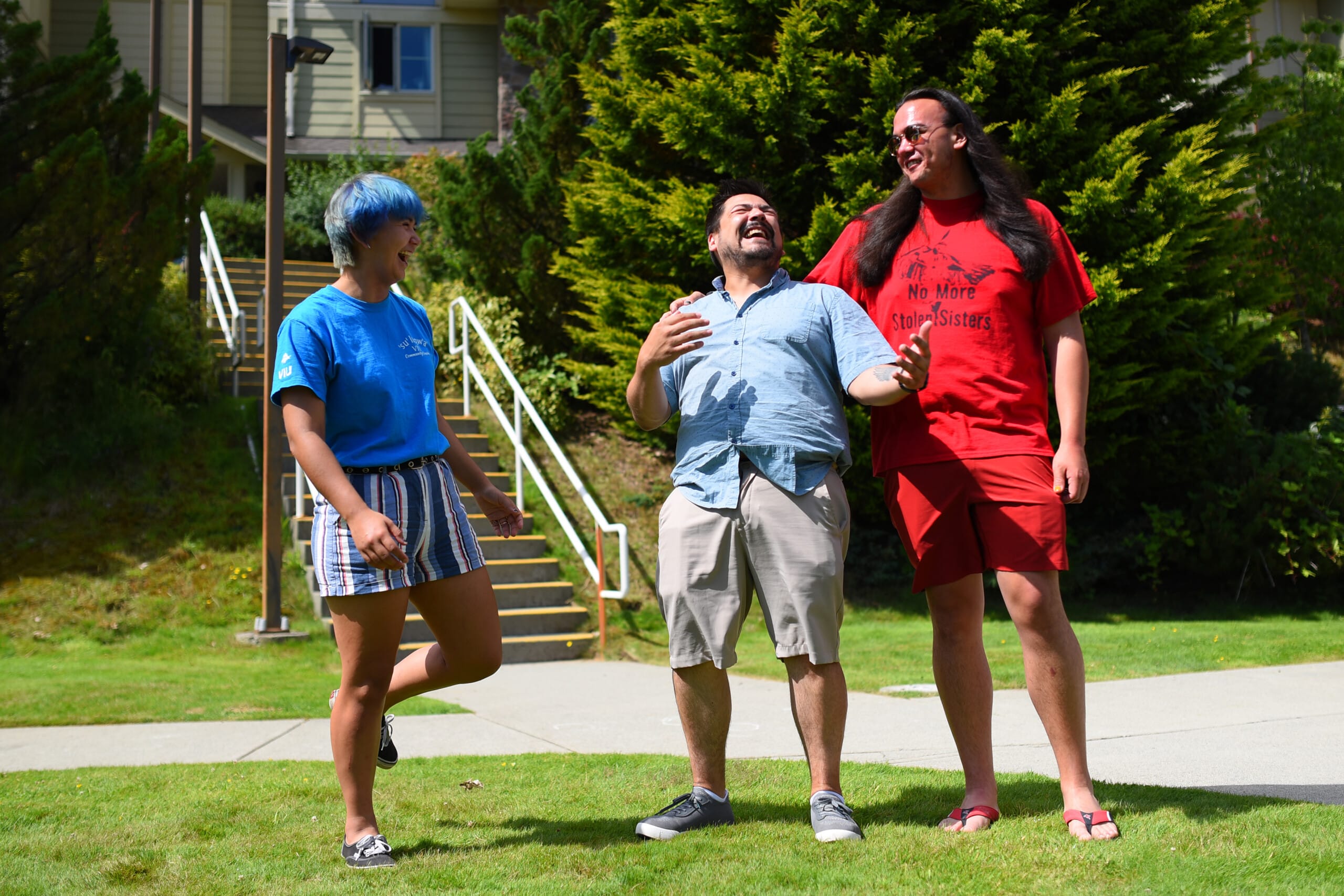
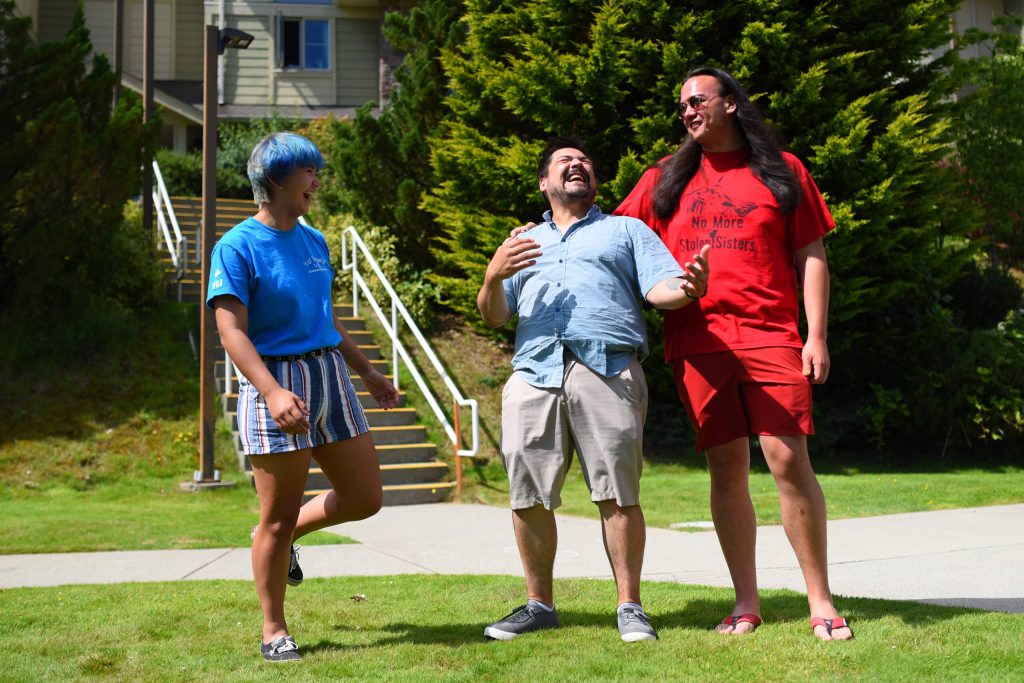
It’s a hot Friday afternoon, and Thuy’she’num Tu Smun’eem camp leaders Sheldon Scow, Hayden Taylor and Talela Manson, are inside a campus dorm room. They’re helping a group of Indigenous youth clean their rooms and pack their belongings to head home after a week on the “Nanaimo” campus of Vancouver Island University (VIU).
Over the course of that week, youth in Grades 7 to 9 participated in the Thuy’she’num Tu Smun’eem: Building a Foundation For Our Youth camp, which was held in-person for the first time since 2019.
Thuy’she’num Tu Smun’eem not only gives youth a taste of what living on campus and attending university might be like, but also introduces them to the networks of Indigenous support and culturally-safe spaces that more post-secondary institutions are offering on campus.
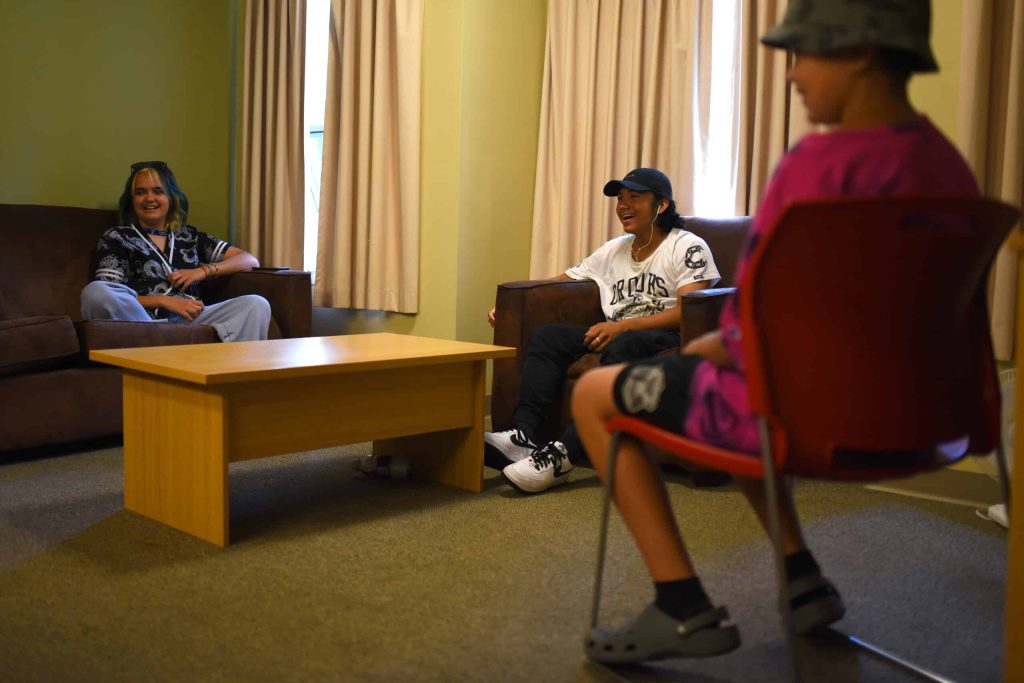
Camp counsellor Talela Manson attended the camp years ago as a youth, and now they’re attending VIU as a student, coming full circle.
“I think the camps were an opportunity to meet mentors and inspired me to come to VIU, to go to post-secondary,” they said in a release.
“For a while, I didn’t know if it was something I wanted to do and how I was going to do that. I got to meet a lot of people who were in my place and could share their experiences. It made me feel less alone and like I had a place to go after high school.”
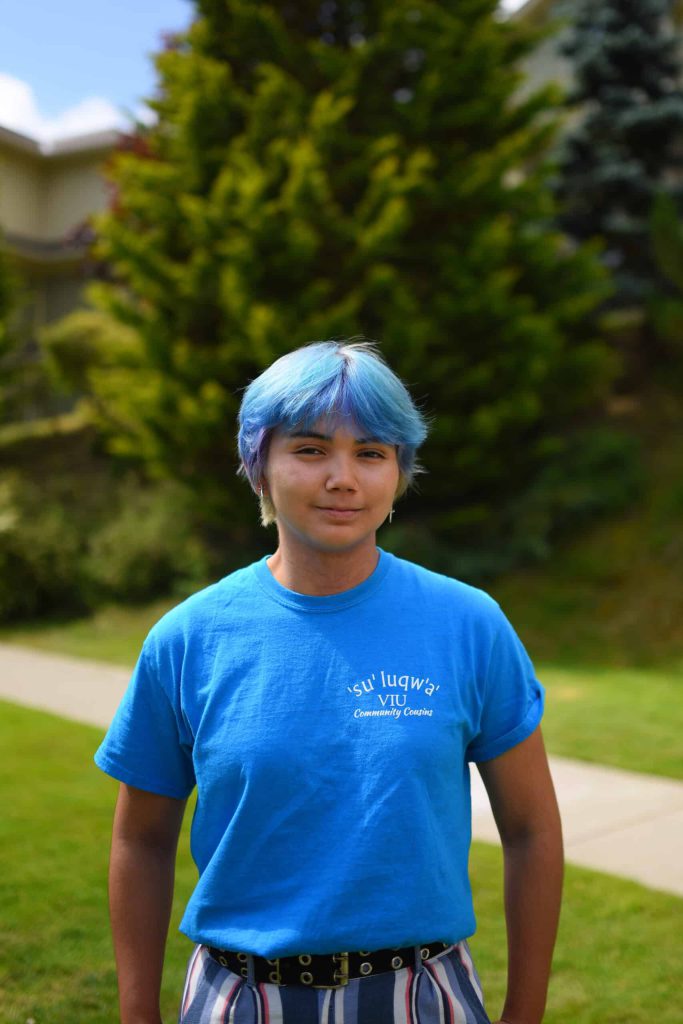
Camp coordinator, Scow, who also carries the name Nu’yam’tsa, said he has seen Manson grow over the years: from starting as a youth to eventually becoming a strong leader on their team. He said this is his hope for all the youth that come to camp.
Over five days, the youth participated in campus tours, financial literacy workshops, public speaking workshops, cultural activities with VIU Elders-in-Residence, drumming and more.
Noah Mayson, of the Snuneymuxw First Nation, is going into Grade 8, and despite having a few choices about where to go for camp, he chose Thuy’she’num Tu Smun’eem in order to learn what life was like on campus.
“It’s been pretty fun actually, we cooked spaghetti last night — all of us — so that was pretty cool,” he said.
By the end of the week, his perspective on university life changed.
“I was expecting bigger classrooms, more kids, more kids here every day. But it’s less kids; every teacher’s cool,” he said.
He recalled a few classes they attended including one about sexual awareness, as well as financial literacy, where they learned about how to save money.
Jackson Jules, from the Ka:’yu:’k’t’h’ and Hesquiaht nations, is going into Grade 7, and said he had a good experience during the week. The campus wasn’t entirely unfamiliar to him. “I kind of knew what to expect, because I’ve been here before,” he said, explaining that his mother just graduated from VIU. He said he had a lot of fun participating in activities and games with the other youth during their free time.
Asked if he is considering one day also going to university he said, “definitely,” as he’s interested in pursuing writing.
Thuy’she’num Tu Smun’eem is led by VIU’s ‘su’luqw’a’ Community Cousins, an Indigenous student mentorship program which focuses on supporting Indigenous students on campus, as well as guiding students and faculty through Indigenous protocol.
Supporting students on campus could look like helping students through personal problems, with homework, and gathering together.
Scow is Kwakwaka’wakw and Dene, and alongside being the camp coordinator, he works for the university as program coordinator for the Office of Indigenous Education & Engagement.
“I was bullied by my professors and my teachers, where they told me I wouldn’t amount to anything. And unfortunately I believed them for the longest time. But it wasn’t until I came to this campus, I joined the ‘su’luqw’a’ Community Cousins, where I found out I do matter. And I can do whatever I put my mind to,” he shared.
Supporting teachers and faculty to learn Indigenous culture and protocol is a key part of their work, so that classrooms are safer places for Indigenous students, such as not getting singled out if a question regarding their culture arises during class.
This is what one of the camp counsellors, Taylor, of the Haisla Nation, experienced personally while attending VIU himself in the early 2000s. He remembers how uncomfortable he felt. Now a father, and in pursuit of a masters of education, Taylor continues to be a camp leader to help create a safe space for the next generation of Indigenous youth.
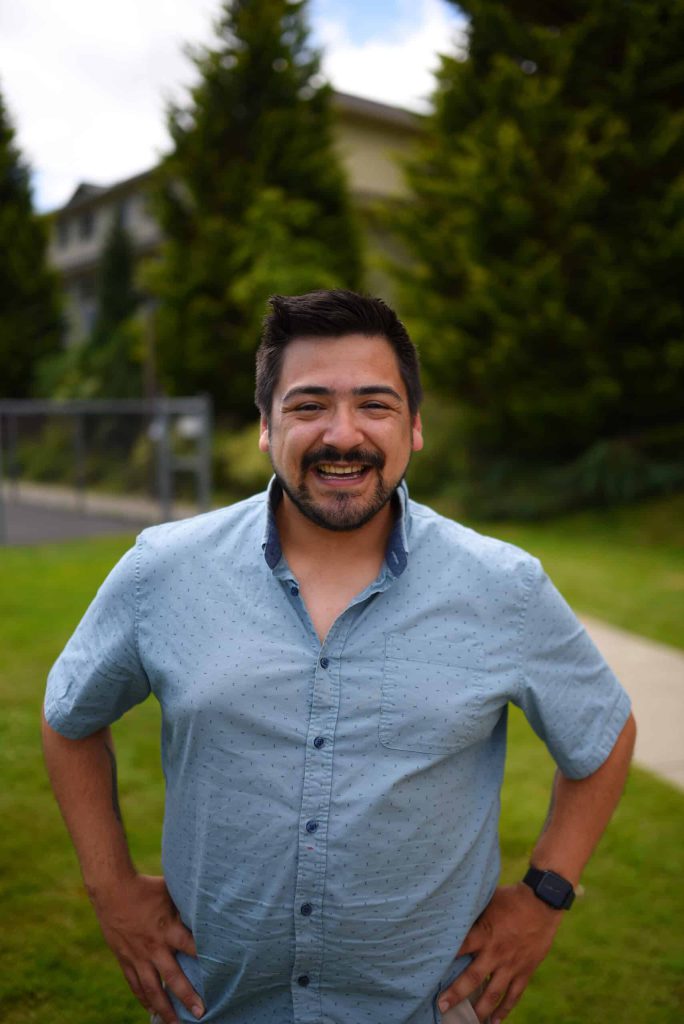
Growing up in the foster care system with a non-Indigenous family, Taylor said he lost his cultural identity, but found it again while attending university. Joining the community cousins at VIU helped encourage him on this path of growth and reconnection. When he sat down with IndigiNews, he introduced himself in X̄a’islak̓ala, something he said he couldn’t do until a few years ago.
“That’s a problem in Indigenous communities — is the loss of language. So if this one program has gotten me to learn my language, now I’ve got to keep it going,” said Taylor.
After having packed up all of their things, the camp leaders and youth participants walked over to the university’s gathering area, on that last morning of camp. Scow mentioned he’s always sad to see the kids go after a week of growth and learning.
“You see them grow so much during the week, you see them come out of the shell. You see the quiet ones get louder and more firm in their voice, and it’s amazing,” he said.
“If we can give these kids a boost of confidence at a young age, that will be very important, where we can teach them that you don’t have to give up your cultural identity to come to a place of higher learning.”
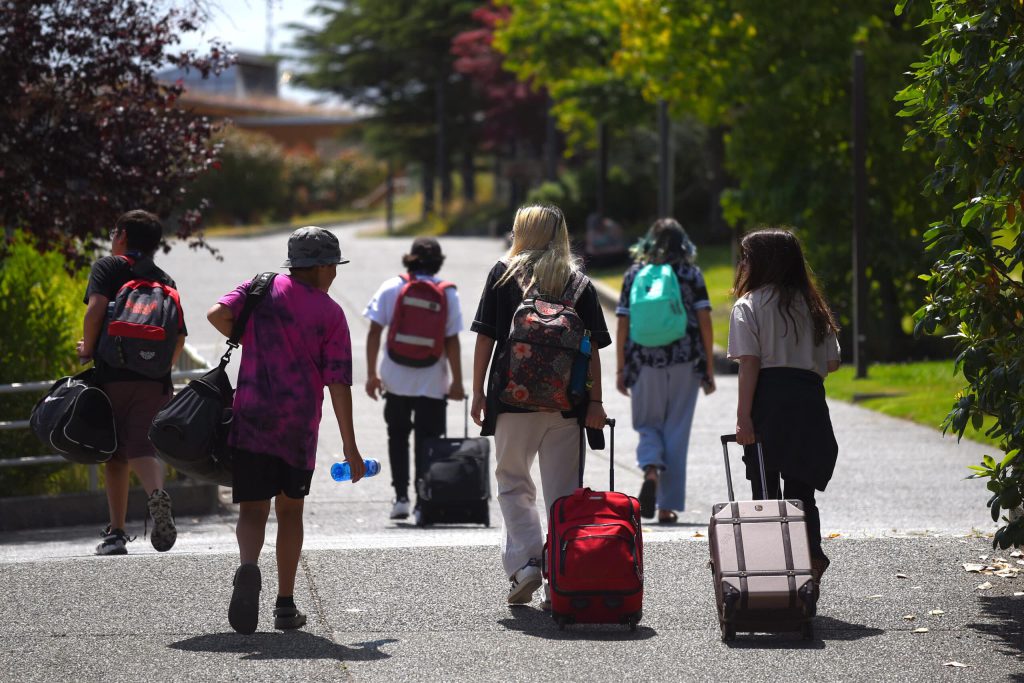
Thuy’she’num Tu Smun’eem will be hosting a second week of this summer camp for Grade 10 to 12 students from August 8 to 12.
Editor’s note: This is a corrected story. A previous version incorrectly stated that Jackson Jules was from the Qayqayt nation. In fact it is the Ka:’yu:’k’t’h’ nation. We apologize for the error.
Author
Latest Stories
-
‘Bring her home’: How Buffalo Woman was identified as Ashlee Shingoose
The Anishininew mother as been missing since 2022 — now, her family is one step closer to bringing her home as the Province of Manitoba vows to search for her
-
Sḵwx̱wú7mesh Youth connect to their lands — and relatives — with annual Rez Ride
The Menmen tl’a Sḵwx̱wú7mesh mountain bike team pedals through ancestral villages — guided by Elders, culture and community spirit
-
Land defenders who opposed CGL pipeline avoid jail time as judge acknowledges ‘legacy of colonization’
B.C. Supreme Court sentencing closes a chapter in years-long conflict in Wet’suwet’en territories that led to arrests




